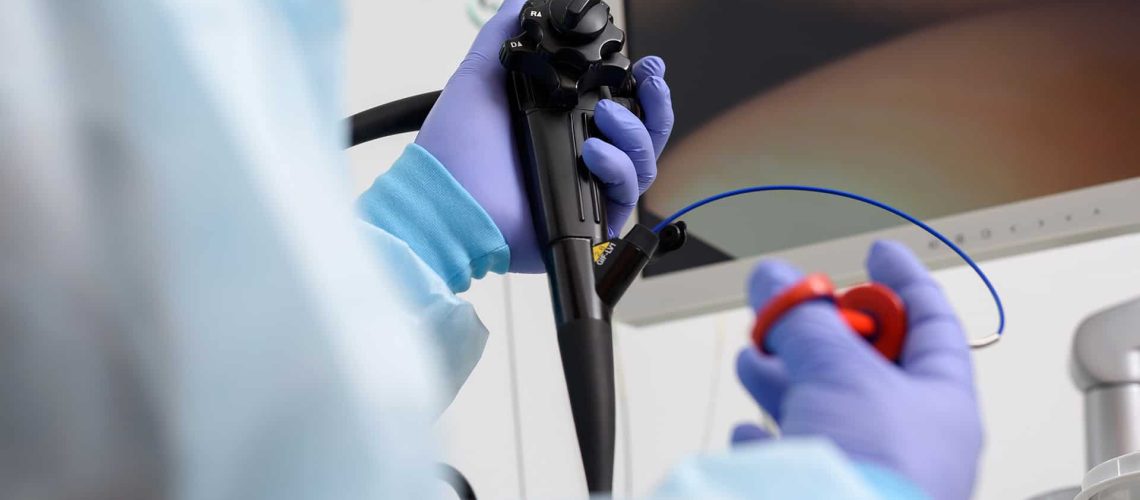Orthopaedic surgery has come a long way in recent years, with minimally invasive surgery (MIS) becoming an increasingly popular choice for patients seeking effective treatment with less downtime and discomfort. This surgical approach offers several advantages over traditional open surgery, making it a more attractive option for those in need of joint replacement or other orthopaedic procedures. In this blog post, we’ll explore the top 5 benefits of minimally invasive orthopaedic surgery and why it may be the right choice for you.
Contents
Benefit 1: Reduced Pain and Discomfort
One of the most significant benefits of minimally invasive surgery (MIS) is the reduced pain and discomfort experienced by patients during their recovery. This advantage is rooted in several key factors that contribute to a more comfortable healing process compared to traditional open surgery.
Firstly, the smaller incisions used in MIS result in less tissue damage, as surgeons make precise cuts that minimize trauma to the surrounding muscles, tendons, and ligaments. This targeted approach promotes faster healing and less inflammation, which in turn leads to decreased postoperative pain. In contrast, traditional open surgery often involves larger incisions and more extensive tissue disruption, resulting in increased pain and a longer recovery period.
The reduced pain experienced by patients following minimally invasive surgery often translates to a decreased reliance on pain medications. With less postoperative discomfort, patients may require fewer prescription painkillers or over-the-counter analgesics to manage their pain. This reduced dependency on pain medications not only contributes to a more comfortable recovery experience but also lowers the risk of side effects and complications associated with their use, such as gastrointestinal issues, dizziness, and addiction.
Another factor that contributes to a more comfortable recovery experience is the expertise of the orthopaedic surgeon performing the minimally invasive procedure. By choosing a skilled surgeon who specializes in MIS, patients can benefit from their extensive knowledge and experience in this specific surgical approach. An experienced surgeon will be adept at navigating the intricacies of minimally invasive techniques, ensuring that the surgery is executed with precision and minimizing the potential for complications that could exacerbate postoperative pain and discomfort.
In conclusion, the reduced pain and discomfort associated with minimally invasive surgery are primarily due to the smaller incisions and less tissue damage involved in the procedure. This advantage, coupled with a decreased reliance on pain medications and the expertise of a skilled orthopaedic surgeon, leads to a more comfortable recovery experience for patients who choose MIS over traditional open surgery.
Benefit 2: Shorter Hospital Stays and Faster Recovery
Minimally invasive surgery typically involves shorter hospital stays, as patients often recover more quickly from the procedure. The less invasive nature of MIS allows for an accelerated healing process, enabling patients to return to their daily activities and work sooner than with traditional open surgery. This faster recovery time not only improves overall patient satisfaction but also helps to minimize the disruption that surgery can cause in a person’s life.
Benefit 3: Lower Risk of Complications and Infections
Another significant advantage of minimally invasive surgery is the reduced risk of complications and infections. The smaller incisions and limited exposure of internal tissues during MIS result in less opportunity for bacteria to enter the surgical site, leading to a lower risk of postoperative infections. Additionally, the preservation of surrounding healthy tissues during the procedure helps to minimize the potential for complications, such as nerve damage or excessive bleeding. By choosing a minimally invasive approach, patients can have greater peace of mind knowing that their risk of complications is reduced.
Benefit 4: Improved Cosmetic Results
For many patients, the cosmetic results of their surgery are an important consideration. Minimally invasive surgery generally leads to smaller scars and improved aesthetics, as the incisions are much less noticeable than those from traditional open surgery. With less visible surgical marks, patients often report enhanced satisfaction with their appearance following MIS. This can be especially beneficial for those who may feel self-conscious about their scars, as the improved cosmetic results can contribute to a more positive self-image.
Benefit 5: Increased Precision and Effectiveness
The advanced surgical techniques and technology used in minimally invasive surgery play a crucial role in ensuring greater precision and effectiveness during the procedure. These state-of-the-art tools and methods have revolutionized the field of orthopaedic surgery, providing numerous advantages for both surgeons and patients.
Enhanced visualization of the surgical area is a key factor in the success of minimally invasive surgery. By utilizing small cameras, such as arthroscopes or laparoscopes, surgeons can gain a magnified and detailed view of the internal structures without making large incisions. This real-time, high-definition imagery allows for more accurate identification and treatment of the affected area, contributing to the overall precision of the surgery.
In addition to advanced imaging techniques, specialized instruments have been developed specifically for minimally invasive surgery. These tools are often designed to be more flexible and maneuverable, allowing surgeons to navigate tight spaces and perform intricate procedures with increased accuracy. The use of these instruments, in combination with the enhanced visualization provided by cameras, significantly reduces the likelihood of accidental damage to surrounding tissues and structures, further improving surgical outcomes.
This increased precision in minimally invasive surgery leads to a number of benefits for patients, including improved surgical outcomes and joint functionality. With more accurate and precise procedures, patients are more likely to experience better alignment and stability of their joint replacements, resulting in greater range of motion, reduced pain, and improved overall functionality. Ultimately, this enhanced precision contributes to a higher quality of life for patients following their procedure, as they can enjoy increased mobility and reduced discomfort in their daily activities.
In summary, the advanced surgical techniques and technology used in minimally invasive orthopaedic surgery allow for greater precision and effectiveness during the procedure. The combination of enhanced visualization through small cameras and the use of specialized instruments enables surgeons to perform more accurate surgeries, leading to improved surgical outcomes and joint functionality for patients. These advancements ultimately provide patients with a higher quality of life following their minimally invasive orthopaedic procedures.
Is minimally invasive surgery right for you?
While minimally invasive surgery offers a range of benefits for many patients, it is essential to note that not all individuals may be suitable candidates for this type of procedure. The decision to pursue minimally invasive surgery depends on several factors, including the patient’s overall health, age, and the specific orthopaedic issue being addressed.
Certain medical conditions, obesity, or a history of prior surgeries in the affected area may pose challenges for minimally invasive techniques. Additionally, some complex orthopaedic cases may require a traditional open surgery approach to ensure the best possible outcome.
Given these considerations, it is crucial for patients to consult with an experienced orthopaedic specialist to determine the best surgical approach for their unique situation. A thorough evaluation, which may include physical examinations, medical history review, and diagnostic imaging, will enable the surgeon to assess the feasibility of minimally invasive surgery and recommend the most appropriate course of action.
Minimally invasive orthopaedic surgery offers numerous advantages, it is essential to recognize that it may not be suitable for all patients. By consulting with an experienced orthopaedic specialist, individuals can ensure that they receive personalized guidance in determining the most appropriate surgical approach for their specific needs.
Minimally invasive orthopaedic surgery offers a multitude of benefits, including reduced pain and discomfort, shorter hospital stays and faster recovery, lower risk of complications and infections, improved cosmetic results, and increased precision and effectiveness. If you are considering orthopaedic surgery, it is essential to discuss your options with a qualified healthcare provider and choose an experienced orthopaedic specialist with expertise in minimally invasive procedures. At Thunder Basin Orthopaedics, we are dedicated to providing our patients with the highest quality of care, ensuring they receive the best possible outcomes from their surgery.


